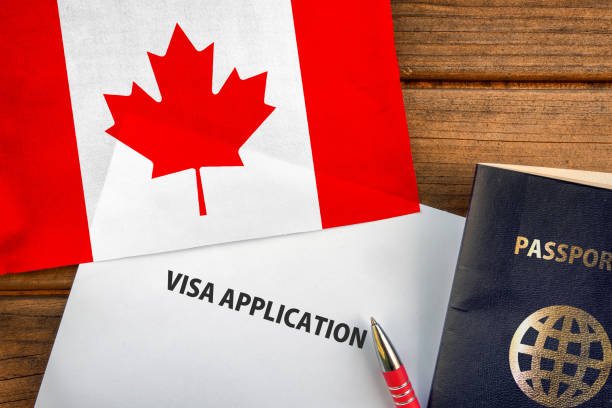The UK boasts one of the world’s largest and most diverse economies, powered by strong sectors like finance, technology, healthcare, and creative industries. Despite global challenges, the UK job market remains resilient, with growing opportunities in green energy, digital innovation, and professional services. Whether you’re entering the workforce or switching careers, the UK offers a dynamic landscape full of potential, but staying informed about trends is key to landing your ideal role.
The United Kingdom (UK) is a vibrant and diverse country located off the northwestern coast of mainland Europe. It comprises four nations: England, Scotland, Wales, and Northern Ireland, each with its own unique culture, history, and identity.
With a population of around 67 million people, the UK is a melting pot of traditions and modern innovation. It has a constitutional monarchy with a parliamentary democracy, blending centuries-old institutions with contemporary governance.
Economically, the UK is one of the world’s largest economies, with strengths in finance, technology, manufacturing, and creative industries. Its education system, world-class universities, and healthcare services contribute to a high quality of life.
The UK’s mix of historical charm and forward-thinking innovation makes it an exciting place to live, work, and explore.
Mistake to Avoid During Jobs Interviews
Interview preparation is more than just rehearsing answers, it’s about demonstrating professionalism, respect, and genuine interest. When Sarah, a recent graduate, walked into her UK job interview well-prepared, it wasn’t just her skills that impressed the employer but her understanding of what the company stood for and how she fit into their culture. Avoiding common mistakes like arriving late or dressing inappropriately boosted her chances immensely.
In the UK workplace, cultural and professional expectations shape how interviews are conducted and evaluated. Knowing these unwritten rules can make the difference between getting the job or missing out.
1. Lack of Research on the Company
Know the Company’s Background and Values
Imagine arriving at an interview and being asked, “What do you know about us?” without any idea beyond the job description. This is a red flag for UK employers who expect candidates to have done their homework. Research the company’s history, mission, core values, and recent developments.
Show Genuine Interest and Preparation
Tom once told a hiring manager how excited he was about the company’s recent sustainability initiatives. This specific knowledge showed he was not just applying anywhere but was genuinely interested in what they do. Such preparation demonstrates respect and enthusiasm.
2. Arriving Late or Too Early
Punctuality is a Sign of Respect
UK workplaces value punctuality highly. Arriving 5 to 10 minutes early is ideal—it shows you respect the interviewer’s time and are organized.
Too Early Can Be Inconvenient; Late is Disrespectful
Arriving too early, like 20 minutes ahead, can create awkwardness or pressure for the interviewer. Conversely, arriving late can ruin your chances instantly, as it signals unreliability. Planning ahead and factoring in possible delays is crucial.

3. Dressing Inappropriately
Understand UK Business Dress Codes
Whether the environment is formal, like in law firms, or smart casual, as in tech startups, dressing appropriately sets the tone. A well-fitted suit or a neat business outfit usually works well if you’re unsure.
First Impressions Matter
Lisa once chose to wear a casual outfit to an interview at a finance firm and noticed the difference in how interviewers responded compared to a more formal setting. First impressions can influence the entire interview experience.
4. Poor Communication Skills
Avoid Overly Casual Language or Slang
British interviewers appreciate clear, professional language. Avoid slang and filler words. Speaking politely and thoughtfully is key.
Clear, Concise, and Polite Communication
Keep answers focused and avoid rambling. Clarity shows confidence and respect for the interviewer’s time.
Maintain Good Eye Contact and Body Language
Non-verbal cues like steady eye contact, a confident posture, and a firm handshake create trust and demonstrate engagement.
5. Not Preparing for Common UK Interview Questions
Typical Questions You Should Anticipate
Common questions like “Tell me about yourself” or “Why do you want this role?” are designed to understand your motivation and fit.
Use the STAR Method for Competency Questions
Competency questions like “Describe a time you solved a problem” are best answered using the STAR technique:
- Situation: Set the context
- Task: Explain your responsibility
- Action: Describe what you did
- Result: Share the outcome and what you learned
This structured approach helps you deliver impactful, memorable answers.
6. Failing to Ask Questions
Asking Questions Shows Engagement
When Emma asked her interviewer about upcoming projects and team dynamics, it signaled her enthusiasm and forward-thinking attitude.
Examples of Good Questions
- “What does success look like in this role after six months?”
- “Can you tell me about the team I’ll be working with?”
- “Are there opportunities for professional growth?”
Insightful questions turn the interview into a two-way conversation and help you assess if the company is right for you.
7. Being Negative About Previous Employers
Why It’s a Red Flag
Speaking poorly of former employers suggests a lack of professionalism and can make interviewers doubt your attitude.
Handle Past Challenges Diplomatically
Instead of complaining, frame past difficulties positively: “I learned a lot from a challenging project, especially how to manage tight deadlines under pressure.” This shows maturity and resilience.
8. Not Understanding UK Work Culture
Expectations Around Teamwork, Punctuality, and Professionalism
UK workplaces often emphasise collaboration, respect for diversity, and timely delivery. Showing that you value these principles helps employers see you as a good cultural fit.
Demonstrate Cultural Fit
Mention how you’ve thrived in team environments, respect deadlines, and communicate openly. For example, “In my last role, I regularly worked with cross-functional teams and learned the importance of clear communication and mutual respect.
9. Overlooking the Importance of Follow-Up
Sending a Thank-You Email
After the interview, many candidates miss the opportunity to send a polite thank-you email. This simple gesture reinforces your interest in the role and appreciation for the interviewer’s time.
How It Enhances Your Impression
Alex once sent a thoughtful follow-up message summarising key points from the interview and expressing enthusiasm for the position. This helped keep him top of mind and demonstrated professionalism.
10. Being Unprepared for Practical Tests or Assessments
Expecting Skills or Personality Tests
In many UK job interviews, especially for technical or graduate roles, candidates may be asked to complete practical tests, case studies, or personality assessments.
Importance of Familiarity and Practice
Not preparing for these can lead to unnecessary stress and poor performance. Research common test formats related to your field and practice beforehand to boost your confidence and accuracy.
11. Failing to Show Adaptability and Problem-Solving Skills
Why Flexibility Matters in UK Workplaces
Employers in the UK highly value candidates who can adapt to change and handle unexpected challenges positively.
Demonstrating Adaptability in Your Answers
Use examples from your past experience to highlight how you managed change or solved problems creatively. For instance, “When a project deadline was moved up suddenly, I coordinated with my team to reorganise priorities and meet the new timeline successfully.
Conclusion
Avoiding these common mistakes is not just about ticking boxes; it’s about presenting yourself as a polished, culturally aware candidate who will add value beyond skills alone. With the right preparation, punctuality, communication, and attitude, you can confidently navigate UK job interviews and move closer to securing your ideal role.


















